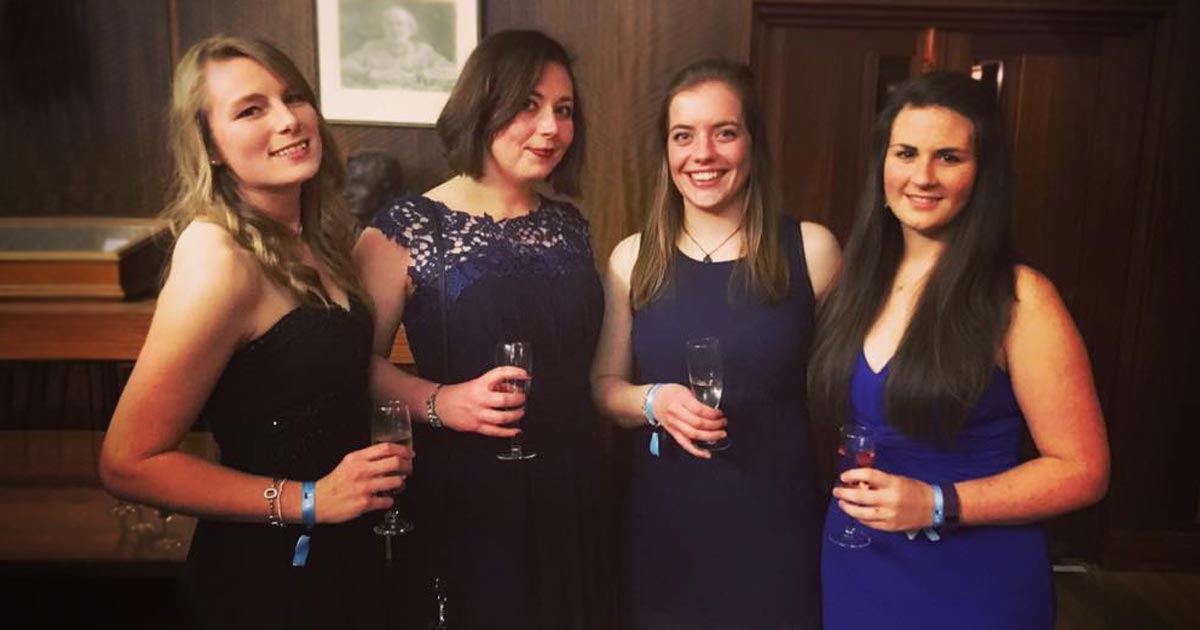 The new year brought with it my last student congress season.
The new year brought with it my last student congress season.
It was the turn of Cambridge to host the Association of Veterinary Students (AVS) Congress this year, and I attended lectures covering a range of disciplines and species. These included:
- equine dentistry
- rabbit surgery
- pig disease epidemiology
- a TB panel
However, my personal favourite was a discussion of novel treatments for small animal ophthalmology.
Fourth course

Saturday evening brought with it the highly anticipated black tie ball, for which the Cambridge team had pulled out all the stops. Feeling like I’d stumbled on to the set of The Theory of Everything (despite the inflatable animals present in an attempt to keep a veterinary theme alive), I was thrilled by the infamous Cambridge fourth course of port and cheese.
The weekend culminated in the AVS annual meeting, at which the association’s achievements from the preceding year were summarised, while some goals and thoughts for the future were discussed.
One important factor of veterinary education discussed within AVS and the BVA at length recently is EMS funding. The AVS committee is working hard to lobby the student finance organisations to recognise the additional time vet students undertake (for the most part unpaid) on placement during their holiday time. In doing this, they hope veterinary students will be offered a bigger maintenance loan to help fund the 38 weeks of EMS undertaken throughout the degree. It’s early days, but the committee is considering this a priority.
Still in the dark
Another point discussed was (my heart breaks a little more every time I hear this word) Brexit.
Until the Brexit deal is finalised, we’re still all pretty much in the dark about how this will affect both the general population and the veterinary community. However, one area of profession that is almost certainly going to feel a large impact is the public health sector – a great deal of OVs are EU citizens and the uncertainty surrounding employment has already resulted in a fall of EU registrations with the RCVS.
This has sparked discussions regarding the scope of the veterinary curriculum and whether it should encompass more of a public health weighting, in an effort to encourage more UK graduates to get involved and fill the inevitable gap in the coming years.
But, as we all keep saying, we will have to wait and see what Brexit brings.
Courses on horses
My second congress of the year was the Student Equine Veterinary Association symposium held at our very own University of Glasgow.
 Some well-known faces from the equine veterinary world made appearances for lectures and seminars, in addition to our own equine clinicians imparting their wisdom.
Some well-known faces from the equine veterinary world made appearances for lectures and seminars, in addition to our own equine clinicians imparting their wisdom.
Practical sessions gave students from other vet schools the opportunity to appreciate the clinical skills teaching we have undergone throughout the course, such as suturing, nerve blocks, bandaging and dentistry.
I took part in a physiotherapy practical – something very few veterinary students are exposed to unless they’ve had their own horses treated – while the euthanasia seminar was extremely helpful and full of tips nobody really teaches officially until you’re out in the real world.
Not surprisingly, the Glasgow students were keen to show off the Scottish traditions by starting the black tie dinner with haggis and ending it with a good old ceilidh.

Leave a Reply